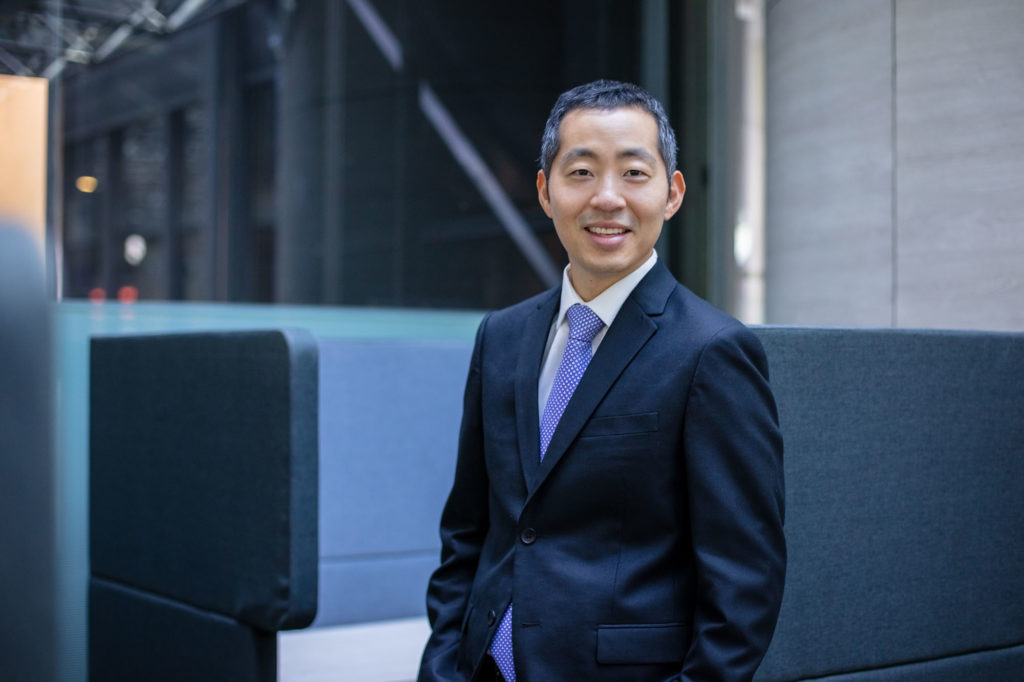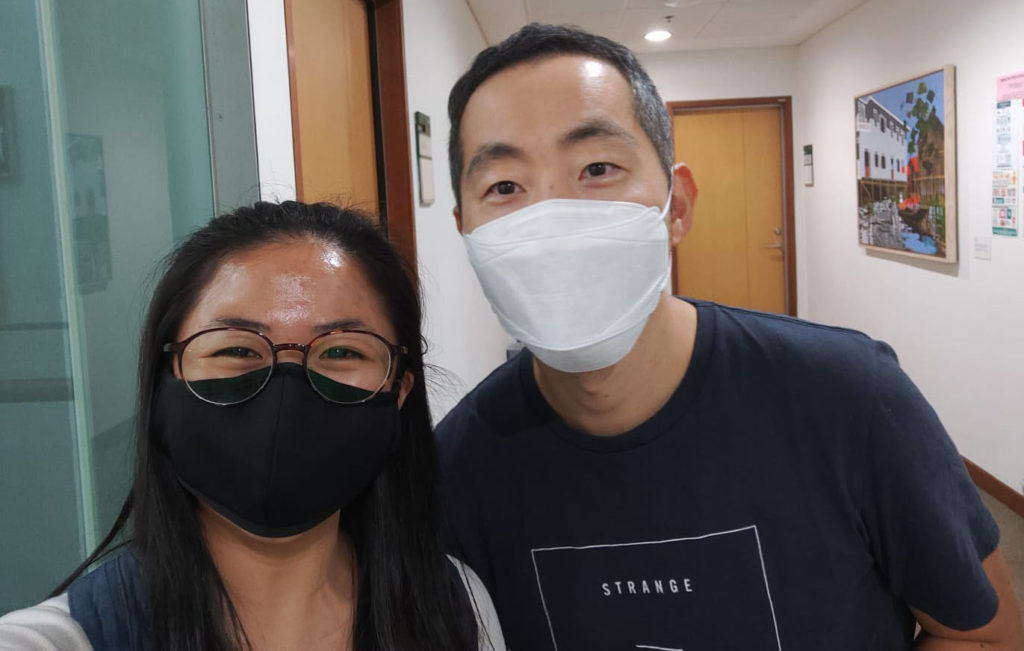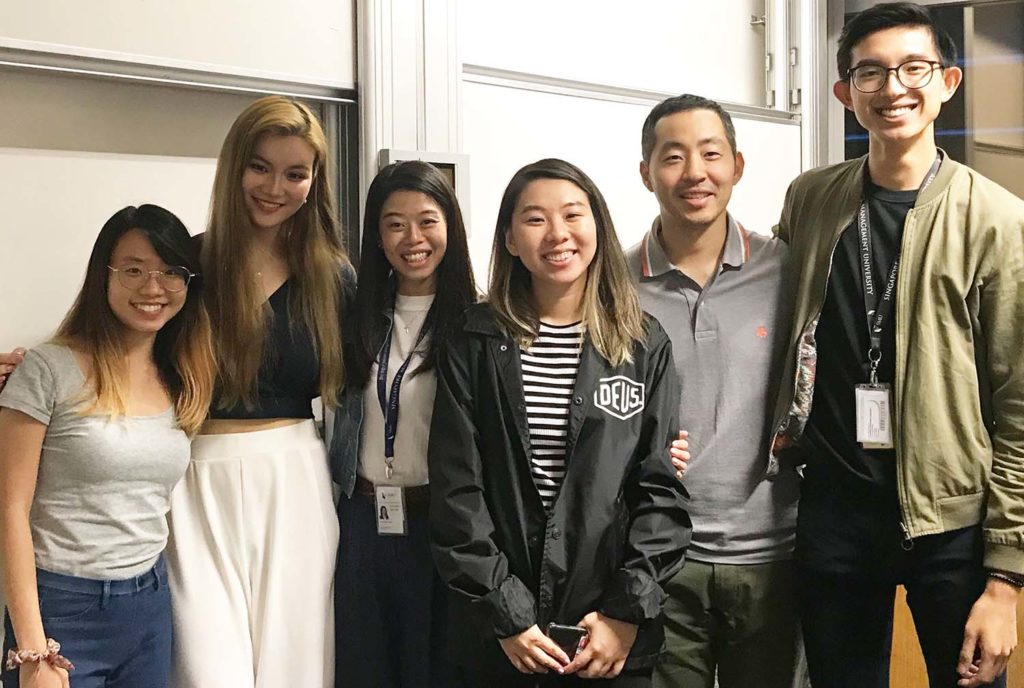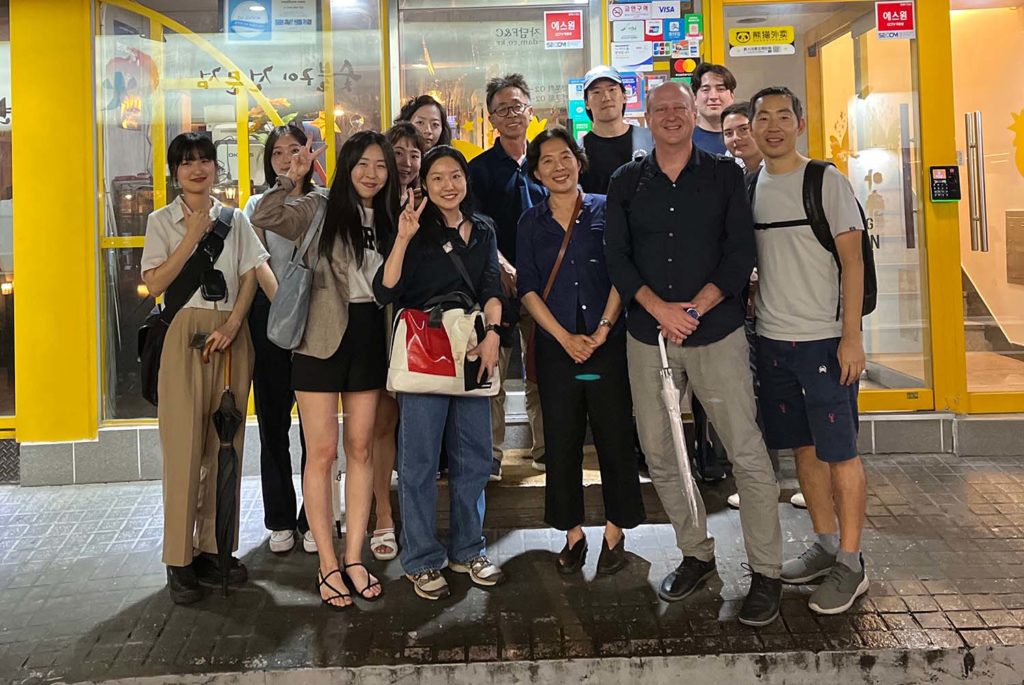First Person
Careers Up Close: Kimin Eom on Keeping the Faith in Sustainability Research

Kimin Eom is an assistant professor of psychology at Singapore Management University. His research focuses primarily on prosociality, specifically within the context of global challenges that threaten society’s sustainability.
Current role: Assistant professor of psychology, Singapore Management University, 2018–present
Previously: PhD student, University of California, Santa Barbara, 2012–2018
Terminal degree: PhD in psychological and brain sciences, University of California, Santa Barbara, 2018
Recognized as an APS Rising Star in 2023
Bouncing back from rejection • Addressing sustainability research gaps • Relishing the work • Maintaining morale • Helping students build on small successes • Finding what you’re passionate about • Eyeing new horizons
Bouncing back from rejection
Right after completing my PhD at UC Santa Barbara, I moved to Singapore to take up this position at Singapore Management University (SMU).
It’s on the tenure track, and I feel grateful that I got it. I remember when I went on the job market in the 6th year of my PhD. I applied for many (about 40?) positions including postdoc and tenure-track positions across the world—United States, Canada, United Kingdom, Australia, Hong Kong, Singapore, Korea! I was optimistic at first. However, I got no news from most of the places, making for one of the most stressful periods in my life. Luckily and thankfully, I eventually got two offers, and one of them was from SMU.
When I visited for the interview, I got a good impression of SMU and Singapore. I liked SMU’s vibrant atmosphere—it’s a young university with an emphasis on the social impact of research, which I found to be a good fit for my research on sustainability. I was also impressed by the food; it may sound silly, but I was especially impressed by local restaurants where I could choose from various kinds of noodles (e.g., egg noodle, glass noodle, white noodle with different thicknesses). I am not a hard-core foodie, but food is definitely something I value that makes my life more enjoyable. After the visit, I shared my experience with my wife and my son, who was 4 years old at that time, and we decided to take the offer and come to Singapore for a new adventure.
Read all of the articles from the September/October Observer.
Addressing sustainability research gaps
For almost the last decade, my research has focused on culture and sustainability. When I got started, there was a significant body of research on environmental attitudes and behavior but a relative dearth of research that considered culture and diversity. Given the global nature of sustainability problems, I thought this was a serious limitation. My research has addressed this gap by examining diverse forms of culture, such as nationality, social class, and religion, to understand how people with different cultural backgrounds respond to sustainability problems and what similarly and differently motivates their sustainability-related actions.
I am currently expanding this research with several ongoing projects. One active topic is religion. Religion is very complex as it consists of various notions, beliefs, norms, and practices. Importantly, these elements often have different (and often opposing) implications for how people with religious beliefs approach environmental issues. I try to unpack this complex picture of how religion affects environmental attitudes and behavior. In addition, I have started to approach sustainability issues in a broader sense beyond environmental aspects. Societal sustainability requires not only environmental protection but also social inclusiveness and harmony. Thus, my recent work has examined topics relevant to social sustainability by studying how attitudes and behaviors toward outgroups change in response to societal and global threats such as pandemics.
Relishing the work
I enjoy the autonomy of my job. I can decide what to research, which topics I personally find interesting and important, and how to use my time. Although it is not always easy to use time efficiently, I feel grateful to have this much autonomy and flexibility in my work.
I also like meeting with young students. Although I’m the teacher, I actually learn a lot from them. Many times, I have been fascinated in class discussions by students’ ideas that I never thought of. I also learn a lot about new trends, cultures, technologies, social issues, etc. So, I feel privileged to interact with these young, energetic, and bright minds through my work.

Maintaining morale
The biggest challenge I’ve encountered is rejection! Papers, grant applications, job applications, award applications, etc.—a lot of rejections happen in my line of work, and I need to deal with them. The first rejection I experienced really hurt. We initially submitted my first paper as first author (published in 2016 in Psychological Science) to another journal. We received promising reviews from all but one very critical reviewer. Even after multiple rounds of revisions, we could not convince that person, and the paper was finally rejected. When I learned about the rejection via email, I sat blankly for a while. I eventually got used to rejection as I experienced it more and more, but it still hurts (to a lesser extent, I think). I try hard not to let it dampen my self-esteem and motivation.

Here’s a useful tip for handling rejection that I learned from a senior colleague: When you get negative news, don’t overthink it. That’s too painful. So now after I learn the outcome (i.e., rejection), I only quickly skim the email or just close it right away. I focus on other work and let some time (days or even weeks depending on the situation) pass. After this distancing period, I reapproach the notification. I find that, this way, I can process rejections and negative news in a less painful and more constructive way that feels less personal.
Another general lesson is to keep trying. Occasionally, this leads to rewards and positive outcomes that I might not even expect (e.g., the APS Rising Star award).
Helping students build on small successes
I currently have two PhD students. I try to help my students experience success and rewards early on. I feel that advisors are sometimes too ambitious and apply too high a standard from the beginning, which can lead students who were initially passionate about their research to experience a significant drop in motivation. I think a reason, in part, is that they have to work too long to get feedback or a positive outcome. As we all know, research is sometimes boring. Most of all, it is a slow and long process. It can take years to develop a project and eventually produce a publication from it. Sometimes, students—especially when they first start their research career—do not fully understand this reality, and as time goes by, they become discouraged. To prevent demotivation, I usually start students with a small project that is more likely to produce a positive outcome early on, such as a relatively small paper. I find that such an initial success works positively for students and keeps them motivated in their research. They also learn a lot by completing the full process from idea generation to publication.
In addition, I think it’s important for advisors to understand their students’ different working styles and characteristics. I try to tailor my mentoring approaches accordingly. For example, some students are good at multitasking while others are not, some students are faster but make more mistakes, and others are slower but more meticulous. I try to grasp these characteristics and adjust how I assign work and proceed with projects (e.g., number of projects, deadlines, etc.). By appreciating differences in working styles, I believe that we can collaborate more efficiently with students, helping them fulfil their potential.

Finding what you’re passionate about
My advice for early-career researchers is to study a topic(s) that is personally important and meaningful. Students often ask me what the most important characteristic to be successful in this career is. My answer is always persistence. As I mentioned, we face more rejections than successes. Plus, it is not like we get great external rewards for our work (e.g., academic salaries are modest compared to those in industry). To pursue our research persistently, we need to have some internal motivation, and I think doing research you find important and meaningful really helps. Then, delve into this research topic. Given that we have limited time and resources, I think early-career researchers are more efficient when they do research in a focused manner instead of touching too many topics. From my experience, as you start to establish yourself in one research area, opportunities to expand will follow.
Eyeing new horizons
After many great years at SMU and in Singapore, my family and I recently decided to move to Australia! I am taking up a faculty position in management at the Australian National University. We are very excited about this new adventure. I am excited to meet new colleagues and develop new collaborations, and it will be a great opportunity to expand my research. It is a management department, so I will be working with organizational behavior scholars, and I hope to study sustainability psychology in the context of organizations. In particular, I have a keen interest in corporate social responsibility (CSR). I will examine research questions including why and how employees and managers support CSR and how CSR affects outcomes key to organizations, such as perceptions of companies, job motivation, and employee well-being.
Feedback on this article? Email [email protected] or login to comment. Interested in writing for us? Read our contributor guidelines.





APS regularly opens certain online articles for discussion on our website. Effective February 2021, you must be a logged-in APS member to post comments. By posting a comment, you agree to our Community Guidelines and the display of your profile information, including your name and affiliation. Any opinions, findings, conclusions, or recommendations present in article comments are those of the writers and do not necessarily reflect the views of APS or the article’s author. For more information, please see our Community Guidelines.
Please login with your APS account to comment.